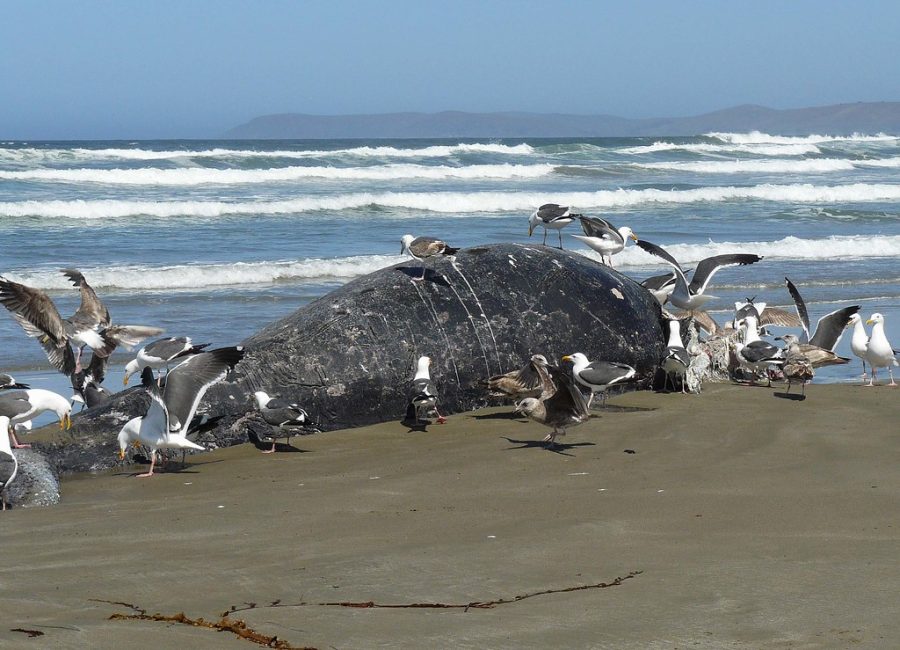Suicide, Pollution, or Climate Change: Why Are So Many Whales Dying at the Jersey Shore?
March 24, 2023
A whale washed ashore on Thursday, March 2nd, in Seaside Park, New Jersey; this whale’s death is the latest in a series of six dead whale sightings along the East Coast. When whales die in the ocean, their carcasses are either consumed by scavengers or sunk to the ocean floor. But, this surge of whale deaths along the Jersey Shore requires rapid attention from volunteer cleaners and a volunteer necropsy team to investigate the reason for death because the foul stench of dead whales has upset nearby residents. A New York Times article mentioned how volunteers have to manually examine the carcasses for any parasites, scars, or bruises because “there is no way to X-ray a creature as large as a school bus on a beach.”
So, who or what is to blame?
According to National Geographic, thousands of whales, dolphins, and other marine animals beach or strand themselves every year. In previous years, this phenomenon has been explained by suicidal behavior, when low sonar (a sound technique marine animals use to communicate) causes hemorrhaging, which is the bleeding of a damaged blood vessel. However, the unusual rise in deaths has stirred speculation of other potential explanations.
Some investigators have proposed that the surge in online shopping and shipping has contributed to whale deaths. Many of the recent humpback whale deaths have external damage that suggests ship strikes as the likely cause of the death. And, according to The Guardian, “of 178 East Coast whale deaths scientists examined, 40% were caused by ships or whales becoming entangled in fishing gear.” Online pandemic purchasing habits have made New York and New Jersey ports busier and more congested; as the climate changes and ocean temperatures rise, whales migrate to new locations that are typically closer to the shore which then increases the likelihood of a whale-ship collision.
Additionally, a theory that the installation of wind turbines off the Atlantic coast has been contributing to whale deaths has been circulating. Apparently, many New Jersey beach town mayors and beach town residents have argued and protested against the generation of offshore wind energy. However, scientists that are studying whale beachings have not established a clear relationship between wind turbines and whale deaths. Rather, those who oppose wind turbines appear to be using the recent whale deaths as an opportunity to strengthen their standpoint.
So, will the whales continue dying at an alarming rate? How can we help the wailing whales?
According to Matthew B. Eisenson, it’s hard to completely avoid whale deaths because “climate change can impact marine life––and [humans] need renewable energy to mitigate climate change.” In other words, there needs to be a compromise in order to reduce climate change and protect all lives––marine and human alike. So, although there are numerous factors contributing to the increase in whale deaths, especially the humpback species, the lack of evidence against the off-shore wind turbines suggests that the best way to prevent future whale deaths is to simply support organizations working to protect whales.

















































































































































